
If you and your family love seafood, bump up the flavor by cooking with seawater. Seawater cooking is popular for crab boils, lobster cook-offs and other fresh-caught seafood. The natural levels of salt in the water can add to the seafood flavor, and coastal barbecues make seawater cooking appealing, as you can just haul in a bucketful from the ocean without having to cart heavy jugs from the house. However, there are some health considerations you should be aware of when cooking with seawater.
Health Risks
Seawater is extremely high in salt, and high salt intake causes high blood pressure, which can lead to heart attack and stroke. Starting your kids off on a high-salt diet can lead to poor eating habits in the future as they become accustomed to the taste, so save your seawater cooking for special occasions and specific foods. Also, diseases in the seawater can cause health risks, so never cook with seawater from high-risk areas, which are usually labeled for fishermen with warning signs. You can also look up "red tide" warnings for your area so you know which beaches to avoid for both seafood and seawater purposes.
Proper Use
Boil any unregulated water source, including seawater, to kill any biological organisms that might contaminate the water. Water's boiling point is 212 degrees F, and a few minutes at 185 degrees is enough to kill any organisms, so by waiting for the water to come to a full boil, you know it is safe. Boiling doesn't take care of chemical contamination, however, which is why you need to watch for warning signs. If your kids are old enough to understand the safety concerns, have them watch the water pot while you prepare the rest of the meal, as you must wait until the water boils to add your food.
Foods to Cook
In-shell seafood like crab, lobster and clams are the best candidates for seawater cooking. Crawfish and other edible freshwater crustaceans also work well. The natural salts enhance the flavor while the shells protect the meat from getting too salty. This type of seawater cooking makes for great camping food. If you have finicky eaters in the family, you might want to bring along a few hot dogs to roast as well, since many children are picky about eating seafood. Add a quick and easy salad topped with raw vegetables and creamy dressing to round out the meal.
Mixing Saltwater and Fresh Water
Mix a small amount of boiled seawater with fresh water for cooking other items that might absorb too much salt from pure seawater cooking. For example, you can boil potatoes in a mixture of one part seawater to three or four parts fresh water. Use no more than a couple of tablespoons of seawater to season your pastas, rice and similar dishes; with the need for boiling, this can make seawater an unappealing alternative to table salt. Seawater also makes an excellent seafood soup base as long as you cut it with unsalted liquids.
Considerations
If you live near the sea and want fresh, free sea salt, consider learning which of the local seaweed varieties are edible. These underwater veggies add a salty flavor that you can control easily by limiting the amount you add, and most are high in vitamins and minerals.
Related Articles

How to Boil Frozen Conch

Are the Nutrients Lost in Slow Cooking?
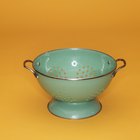
How to Soak Amaranth
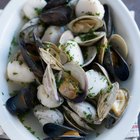
How do Mussels Protect Themselves?
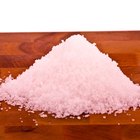
How to Use Sea Salt for Canning
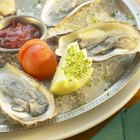
What Kind of Seafood Is High in Iron?

How to Prepare Live Crawfish

Snorkeling in Clearwater, Florida
How to Cook Dried Abalone

How to Harvest Cockles
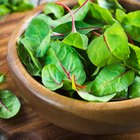
Oxalic & Phytic Acids in Foods
Seafood Boil Menu
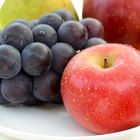
Raw Food Diet and Parasites

Do You Soak Raw Peanuts in Water Before ...
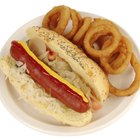
What Are the Dangers of Sauerkraut?
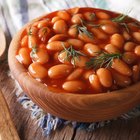
The Best Vegetarian Pinto Beans
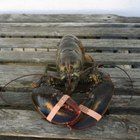
How to Boil Lobster at Home

What Is Accent Seasoning?
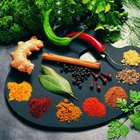
Salt-Free Diet Menus
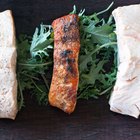
How to Cook Sea Trout
References
Writer Bio
Anne Hirsh has been writing and editing for over 10 years. She has hands-on experience in cooking, visual arts and theater as well as writing experience covering wellness and animal-related topics. She also has extensive research experience in marketing, small business, Web development and SEO. Hirsh has a bachelor's degree in technical theater and English and post-baccalaureate training in writing and computer software.
Photo Credits
Jack Hollingsworth/Photodisc/Getty Images